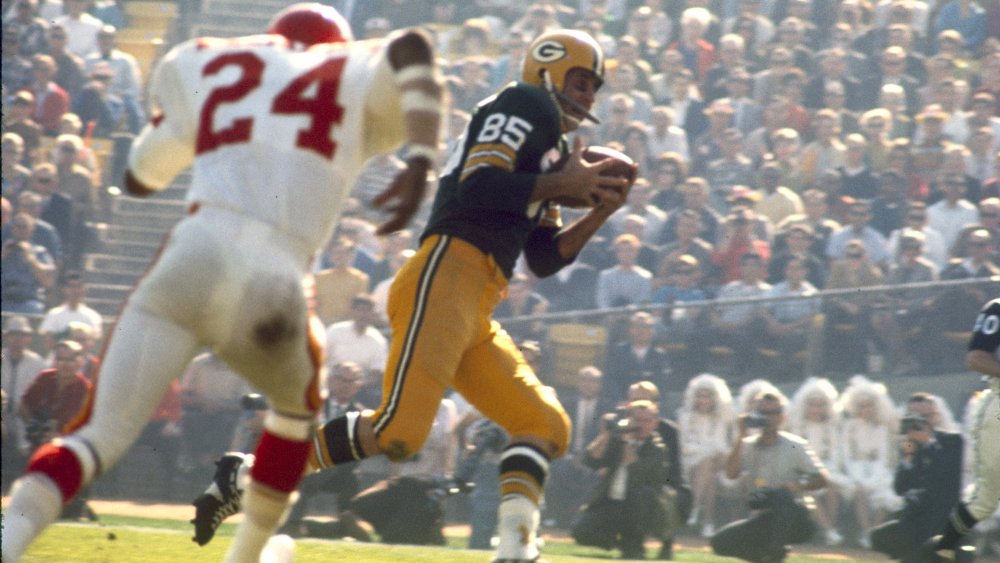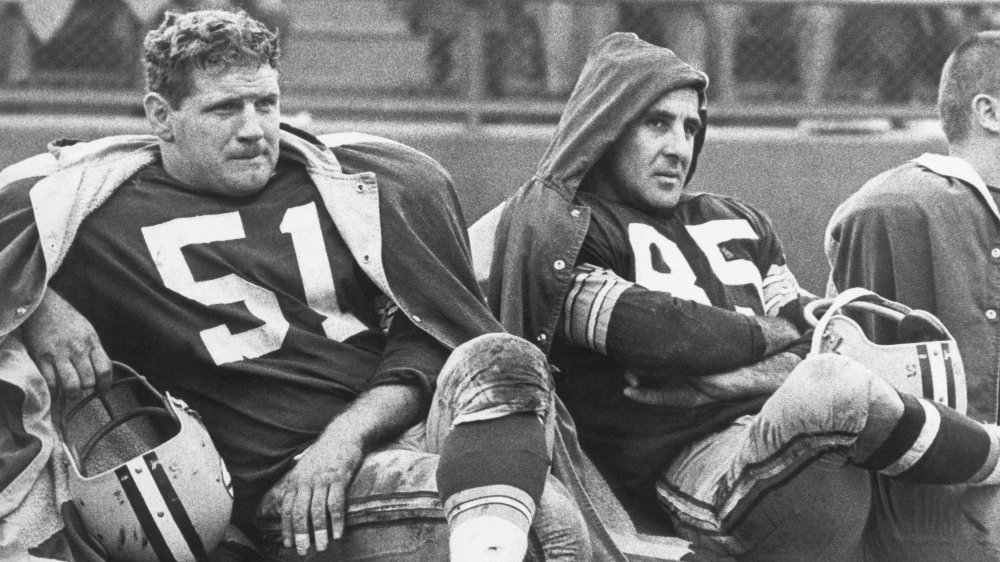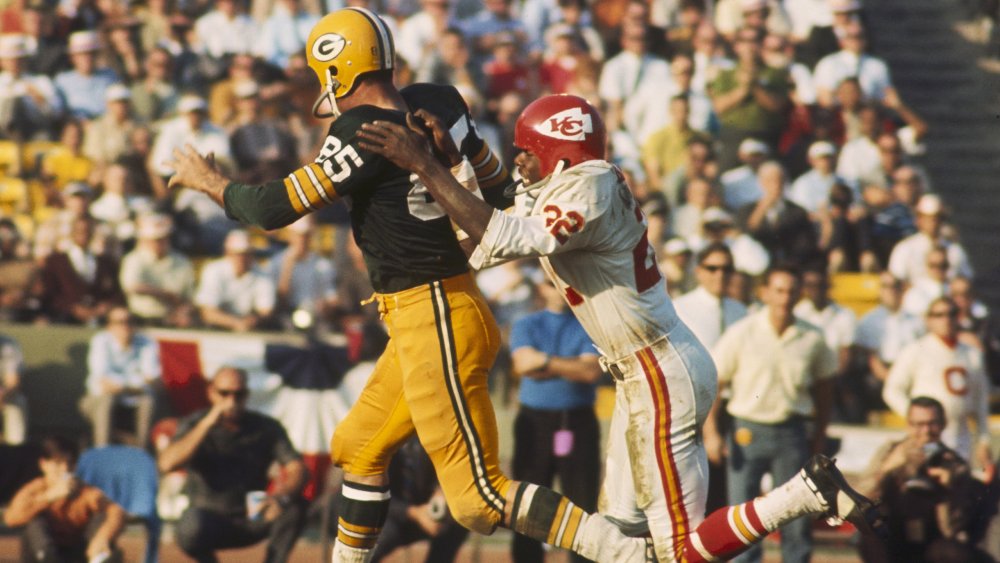The Time A Hungover Player Led His Team To Win The Super Bowl
The NFL has a rather... we'll call it quirky past. For example, did you know that the billion-dollar league didn't pay a cent in taxes until well into the 21st century? According to SB Nation, the league finally gave up its tax-exempt status in 2015, after over 70 years of being on the books as a "nonprofit." Yes, quite a bit has changed in the NFL over the decades. For example, as journalist Bryan Armen Graham tweeted in 2014, players at the first Super Bowl were photographed chugging Fresca and smoking cigs like a bunch of cool kids. In the 90s, for the Dallas Cowboys, at least, it was cocaine, weed, and women in excessive amounts, as The Guardian remembered in 2009.
These days, football's drug of choice seems to be human growth hormone, or HGH. Bleacher Report looked into allegations of HGH use in 2015, finding that an estimated 10 to 40 percent of the league's players used the performance enhancing drugs. "Steroids aren't the problem," said an unnamed veteran player. "HGH is the big problem. For the past four or five years, the league has been almost overrun by HGH. ... The new testing procedures aren't catching anyone, because players know there is almost no way to get caught." Funnily enough, though, one player in the very first Super Bowl would become the stuff of legend under the influence of a drug that does more to enhance performance on the karaoke stage, rather than the football field.
Max McGee never even expected to play in the first Super Bowl
Max McGee has gone down in football history as the guy who led his team to Super Bowl victory with a serious hangover. McGee, a backup wide receiver, had only caught four passes the entire regular season, and wasn't expecting to get up off the bench until it was time to woohoo or boohoo. Maybe the allure of sunny Los Angeles in January, rather than the frigid hometown of his team, was too much for the 11-year veteran. He decided to break curfew and stay out all night drinking with a pair of flight attendants he'd met in the hotel bar the night before the game.
He passed the team's much more disciplined quarterback, Bart Starr, in the hotel lobby as he tramped back to his room for a quick bit of shuteye at 6:30 a.m. First string wideout Boyd Dowler told Sports Illustrated that before the game, the party animal told him, "Whatever you do, don't go down today... I was out all night and I had a few more drinks than I should have and I didn't get much sleep. So just don't go down." But Dowler had already been playing with a bum shoulder, and he did go down on the third play of the game. Legendary coach Vince Lombardi then had to tap the guy who never expected play a single down of that first Super Bowl against the Kansas City Chiefs.
Max McGee was clutch, even — or especially — when he was running on fumes
"Max would make big plays," former teammate Jerry Kramer told SI. "He might drop a no-account pass, but he would catch the big ones. Vince loved him for that." Former Green Bay running back Paul Hornung called McGee "one of the most talented natural athletes we had." Quarterback Zeke Bratkowski, who joined the Packers as Starr's backup in 1964, said that McGee was "instinctive and... had tremendous confidence in his ability... He could read a blitz like a quarterback."
So even though his hangover made him prefer to have sat the whole game out, McGee stepped up and came through in a big way. He scored the first ever Super Bowl touchdown, then caught six more passes for a total of 138 yards that game. One of those passes was also a touchdown. The Packers went on to beat the Chiefs 35 to 10, going down as the first Super Bowl champs in history. As SI noted, McGee's performance on the field that day wasn't only impressive at the time, when the game was much more ground-based than the high-flying passing spectacle it is today. He ended up "just barely missing the list of the top-10 receiving performances in the history of the big game." McGee's reputation followed him until his death by an unfortunate fall at the age of 75 in 2007, when The New York Times remembered him as "the free-spirited Green Bay Packers receiver."


